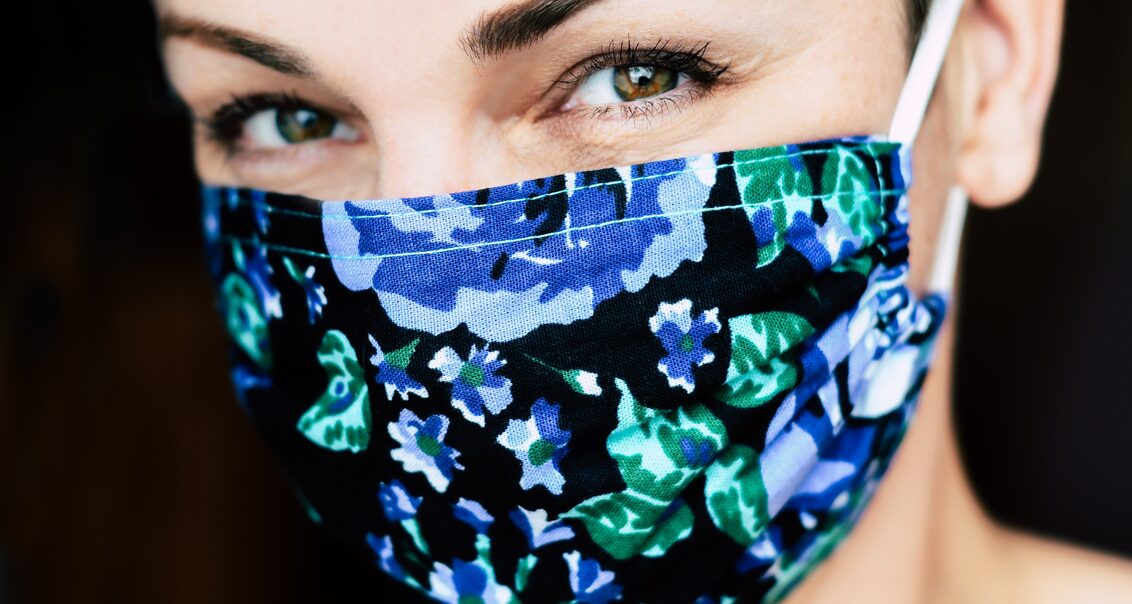Face Masks

Six Tips to Buying or Making a Face Mask
By Naomi Bergner
As people try to limit their exposure to harmful airborne particles, face masks are a practical choice. With many individuals wanting to or required to use face masks in public, it is often a challenge to decide which type to use and where to get one. Here are six tips to consider if you want to buy or make your own mask.
Tip One
Do a search on the internet to get an initial idea of the many kinds of masks available. There are differing opinions on the type of material that is best, the shape, and the construction.
Some styles of masks have the capacity to hold a filter, some form-fit around the nose, some have few or many layers of fabric. There are masks with elastic, with fabric, and other material for the straps.
Find a design that you think will work for you in your price range. Keep in mind, most masks you can purchase are not medical grade masks and are only used to offer basic protection from airborne particles.
Tip Two
If you are unfamiliar with face masks, only purchase one at a time to start with until you know it will fit you properly. Since most handmade masks do not allow for much adjustment, you want to find one that fits your face.
If you purchase a mask that is too large or if you find the straps around your ears are uncomfortable, there are mask strap extenders that go around the back of the head.
These can be found on Etsy or other sites that carry homemade items. Make sure to study the extender closely to ensure it will work for you. An adjustable one offers the most versatility, especially if you have a smaller head.
Tip Three
When ordering from a website that carries masks, be sure to check the estimated shipping time. Some small businesses are backlogged and not able to make and ship products immediately. Sales are final at most companies, so spend the time to view a variety of designs before you order and ask the seller questions if you are unclear about the description.
Tip Four
Many neighborhood online programs will show you people right in your own neighborhood making masks. Some are giving them away, especially to seniors, health-care workers, or those who are out of work and cannot afford to purchase one.
Consider this as an option if it is available near you. You will save money with shipping and if you can pay the neighborhood seamstress, you will help support one of your neighbors.
Tip Five
For those with glasses, wearing a mask often means fog on the lenses. When shopping for a mask, keep this in mind. To prevent fogging, the metal band on the nose area of a mask with that feature can be pinched tighter. Masks with ties can be tied tighter and ones with elastic ear loops may need a strap extender to pull the material in snugly.
Washing your glasses with soapy water will leave a thin surfactant film that will help cut down on misting. A tissue at the top of the mask could also help but test this idea before you go out in public to make sure the tissue will stay in place. You do not want to have to adjust your mask once you are out.
Tip Six
If you like to sew, this is your chance to use all that material that has been piling up in your sewing room. Look on the internet and pick out a face mask pattern that you can work with. There are several different ways to make masks and even no-sew ideas. If you cannot find elastic, which is in high demand right now, there are patterns for tie-on masks available.
Conclusion
Buying and wearing a face mask makes sense during cold and flu season, or for anyone with a weakened immune system. While there are many choices out there, with a little research, you can find the best product for you.
About the Author
She is a licensed massage therapist with a good knowledge in health related topics.
Spotlight
The Antibacterial Cooling Face Mask
It comes with five removable, five-stage disposable filters that trap bacteria, pollutants as small as 2.5 microns, and common allergens such as pollen, mold, smoke, and dust mites with greater than...
More Info >>
 Disclaimer: Articles not intended to Diagnose, Treat, Cure or Prevent Diseases.
Disclaimer: Articles not intended to Diagnose, Treat, Cure or Prevent Diseases.
Issues | Products | Supplements | Testing



